Does Wellbutrin Cause Hair Loss?
While it may cause drug-induced hair loss, follow these tips to manage the concern.
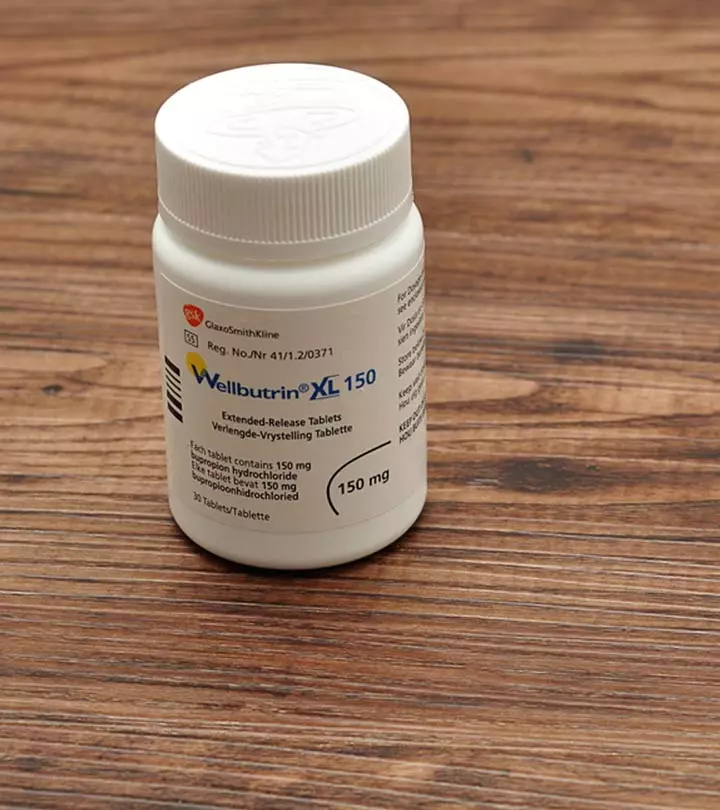
Image: Shutterstock
There are growing concerns that Wellbutrin causes hair loss. But, does it really? This prescription drug is used to treat seasonal affective disorder and depression and for smoking cessation. But, it could have some side effects like hair loss and hair thinning. It may hinder hair growth by deteriorating scalp health. Read on to learn everything about Wellbutrin and hair loss in this post. Scroll down!
In This Article
Can Wellbutrin Cause Hair Loss?
Research indicates that bupropion used in Wellbutrin may cause alopecia (1). Wellbutrin contains dopamine agonists (compounds that imitate dopamine action). These dopamine agonists tend to affect the receptors in hair follicles and eventually lead to hair loss (1).
Wellbutrin and other antidepressants may cause drug-induced hair loss, which may lead to premature baldness. To better understand drug-induced hair loss, we need to look into the hair growth cycle.
The hair growth cycle has three main phases – anagen, catagen, and telogen (2). The anagen phase is where hair follicles begin to grow. Catagen is the regression phase, and telogen is the resting phase. At any given point in time, 90% of hair is in the anagen phase (1). Hair disorders usually involve changes to the anagen and telogen phases in the hair growth cycle (3).
Drug-induced hair loss can lead to effluvium (or hair shedding) in the anagen or telogen phases. While anagen effluvium occurs a few days or weeks from taking the drug, telogen effluvium typically occurs two to four months after you start taking the drug. This can eventually lead to patterned or diffused hair loss that can be acute or chronic.
Research shows that bupropion poses the highest risk for hair loss compared to other antidepressants (4). Studies show that there are 13 notable cases of drug-induced alopecia caused by bupropion (1). Women are more frequently affected by drug-induced hair loss than men (5).
 Did You Know?
Did You Know?Emon Monae, a YouTuber, began taking antidepressants during a stay in a behavioral unit at a hospital following a suicide attempt. She was initially prescribed a low dosage and experienced side effects such as headaches, insomnia, and light sensitivity. Additionally, the vlogger noted hair loss as a significant side effect, with strands of hair falling out when they ran their hands through it. In her vlog, she said, “I would brush my hair and it would just be falling in the sink, like streams and strands of hair was coming out like every single day (i).”
There are ways you can reverse this hair loss. While some have been proven by research, some are believed to work from anecdotal evidence. Take a look at the following section to understand the ways you can combat the ill effects of these drug reactions.
Key Takeaways
- Wellbutrin is a prescription drug used to treat depression and seasonal affective disorder and for smoking cessation.
- Studies indicate that the bupropion used in the Wellbutrin formulation may cause alopecia.
- You can stop taking Wellbutrin to stop and reverse the hair loss caused by it.
What Can You Do To Help Your Hair Grow Back?
- Hair loss due to antidepressants (drug-induced hair loss) is reversible. Hair tends to grow back in a month or two after you stop taking the drug (5). Ensure you consult a doctor before discontinuing any medication.

- Certain drugs may cause nutrient deficiencies, leading to thinning hair, so taking the right nutrient supplements can help.

- You may also try hair masks made with natural ingredients like eggs, milk, oils, yogurt, or fenugreek seeds that can help stimulate hair growth and reduce hair loss.
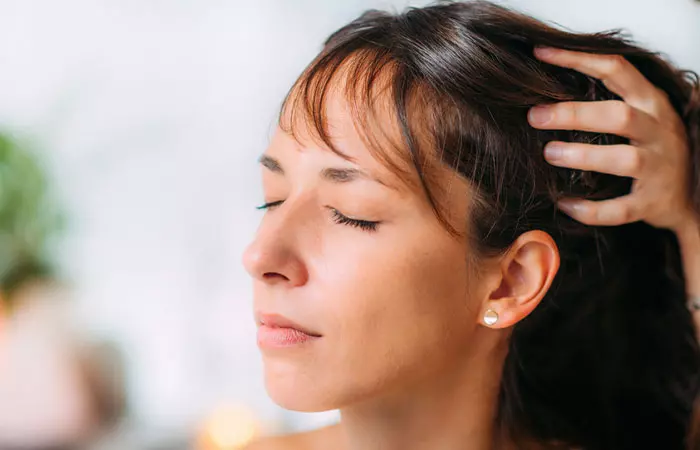
- Massaging your scalp with warm oil can improve blood circulation and stimulate hair growth. This can also improve hair thickness and length (6).
- Topical minoxidil can be used to treat hair loss and stimulate hair growth (7).
- One major cause of hair loss is stress. Improving your lifestyle to reduce stress may also help reduce hair loss.
There are no shampoos or conditioners that can help treat drug-induced hair loss. If the hair loss you experience is worrying you, visit a doctor. They can suggest alternative medications, adjust doses, or add therapies that may help reduce hair loss while treating your main health issues. This personalized approach ensures you get the right care without compromising your overall treatment.
Drug-Induced Hair Loss Diagnosis: When To See A Doctor

It is normal for a person to lose 100 hair strands a day. But if you notice excessive hair loss, consult a doctor. The hair loss may not always be caused by the bupropion you could be taking. There could also be a nutrient deficiency.
Your doctor may perform a gentle pull test to confirm active hair loss (8). You may be asked to stop washing hair for five days before the test. After five days, a lock of hair is gently pulled at the end to note the amount of hair loss occurring. If more than 10% of hair loss occurs, it could be treated as alopecia. The doctor may perform other tests to confirm drug-induced hair loss (this also can include stopping drug usage temporarily to observe its impact on hair loss).
 Quick Tip
Quick TipDiscontinuation Of Medication To Stop Hair Loss
Your hair loss should reduce once you discontinue your medications. But if you need to continue taking the medication for your health condition, you can check for other options to treat drug-induced hair loss. Your doctor might prescribe a lower dosage of bupropion or even offer other treatment options.
Although bupropion has been shown to cause hair loss in some cases, it also can help treat a rather severe condition of hair loss.
Bupropion For Treating Trichotillomania
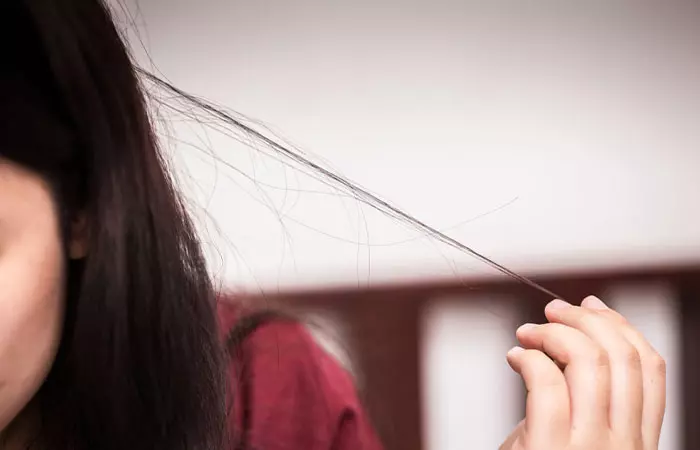
Trichotillomania is a disorder where the patient has a compulsive desire to pull out their own hair. Trichotillomania hair regrowth treatments include fluoxetine. It is a medication normally used to treat this condition. However, a study showed that bupropion could treat non-responsive trichotillomania if the condition shows no improvement with fluoxetine (9).
However, using Wellbutrin may not be always safe as it may cause some side effects, including seizures. Know more in the next section.
Are Seizures Common On Wellbutrin?
Wellbutrin intake could be associated with serious risks like seizures and allergies. People with a history of seizures or specific health conditions should avoid it. Though seizures are not common, the dosage should not exceed 150 mg per dose or 300 mg per day. Seizures usually may occur on higher doses (10). Wellbutrin may also cause other side effects like dry mouth, constipation, headache, nausea, restlessness, trouble sleeping, and weight loss. While daily doses below 300 mg pose a low seizure risk (0.1%), the risk rises to 0.4% with doses of 450 mg or above (11).
Infographic: 5 Simple Ways To Combat Wellbutrin-Induced Hair Loss
While Wellbutrin helps in treating seasonal affective disorder and depression, it may cause hair loss and damage the roots and scalp. Don’t worry! There are simple ways to stimulate hair growth. Check out the infographic below to know more about combating Wellbutrin-induced hair loss.
Some thing wrong with infographic shortcode. please verify shortcode syntaxTo recap, Wellbutrin contains bupropion, which could lead to hair loss. This drug-induced hair loss affects the hair growth phase by causing hair shedding in the anagen or telogen phase. This leads to patterned or diffuse hair loss. But, Wellbutrin can cause hair loss that is reversible, treatable, and temporary. In most drug-induced hair loss cases, once you discontinue the medication, the hair loss stops. However, consult your physician before discontinuing any medication or starting a new treatment. Other options you could try are hair masks made with natural ingredients, nutritional supplements, massaging the scalp, and stress relief.
Frequently Asked Questions
How common is hair loss with Wellbutrin?
There is a higher risk of losing hair due to the consumption of Wellbutrin than any other antidepressant (4).
Is Wellbutrin worth taking?
Though it has side effects like hair loss, it may help treat depressive disorders and help one stop smoking.
Can Wellbutrin change your personality?
It may cause behavioral changes in some people. However, it is always best to consult your doctor before starting any medication.
What happens if I skip a day of Wellbutrin?
Take the missed dose as soon as you can. If it is less than 4 hours before the next dose, do not take the missed dose (but continue with the next dose). Do not double dose.
Is Wellbutrin good for anxiety?
Yes, Wellbrutin may help reduce anxiety levels.
Can you drink coffee with Wellbutrin?
The side effects may aggravate if you consume caffeine with Wellbutrin.
How long does hair loss last after stopping Wellbutrin?
Hair loss may gradually decrease over a period of a few weeks to months after stopping Wellbutrin.
Can hair grow back after stopping Wellbutrin?
Yes, hair often regrows after discontinuing Wellbutrin. However, it can take several months to become noticeable.
Curious to know more about Wellbutrin and its antidepressant properties? Discover its benefits and potential side effects from the video below, allowing you to make informed decisions about your well-being. Check it out now.
Personal Experience: Source
StyleCraze's articles are interwoven with authentic personal narratives that provide depth and resonance to our content. Below are the sources of the personal accounts referenced in this article.
i. Do Antidepressants Work? Wellbutrin vs Prozachttps://www.youtube.com/watch?v=04upN8L4pVo
References
Articles on StyleCraze are backed by verified information from peer-reviewed and academic research papers, reputed organizations, research institutions, and medical associations to ensure accuracy and relevance. Read our editorial policy to learn more.
- Bupropion and Alopecia
https://databankws.lareb.nl/Downloads/Signals_2019_Bupropion%20and%20alopecia.pdf - The Hair Cycle
https://journals.biologists.com/jcs/article/119/3/391/29231/The-hair-cycle - Biology Of The Hair Follicle And Mechanisms Of Nonscarring And Scarring Alopecia
https://www.scmsjournal.com/article/buy_now/?id=22 - Risk of Hair Loss With Different Antidepressants: a Comparative Retrospective Cohort Study
https://pubmed.ncbi.nlm.nih.gov/28763345/ - Drugs and hair loss,
https://www.researchgate.net/publication/233536544_Drugs_and_Hair_Loss - Standardized Scalp Massage Results in Increased Hair Thickness by Inducing Stretching Forces to Dermal Papilla Cells in the Subcutaneous Tissue,
https://www.ncbi.nlm.nih.gov/pmc/articles/PMC4740347/ - Minoxidil and Its Use in Hair Disorders: a Review
https://www.ncbi.nlm.nih.gov/pmc/articles/PMC6691938/ - Diffuse Hair Loss Induced by Sertraline Use
https://www.ncbi.nlm.nih.gov/pmc/articles/PMC4589582/ - Bupropion for the Treatment of Fluoxetine Non-Responsive Trichotillomania: a Case Report
https://pubmed.ncbi.nlm.nih.gov/22129450/ - Bupropion: a systematic review and meta-analysis of effectiveness as an antidepressant https://www.ncbi.nlm.nih.gov/pmc/articles/PMC4837968/
- Bupropion (Zyban, Wellbutrin SR): reports of deaths, seizures, serum sickness
https://www.ncbi.nlm.nih.gov/pmc/articles/PMC99232/ - Bupropion Toxicity
https://pubmed.ncbi.nlm.nih.gov/35593803/
Read full bio of Dr. Shruti Chavan
Read full bio of Anjali Sayee
Read full bio of Eshna Das
Read full bio of Krati Darak





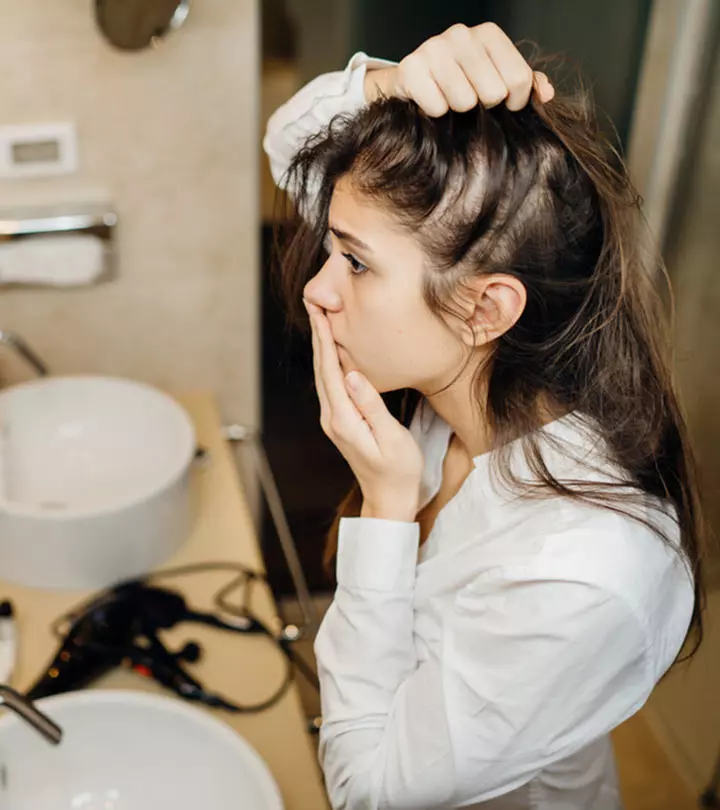
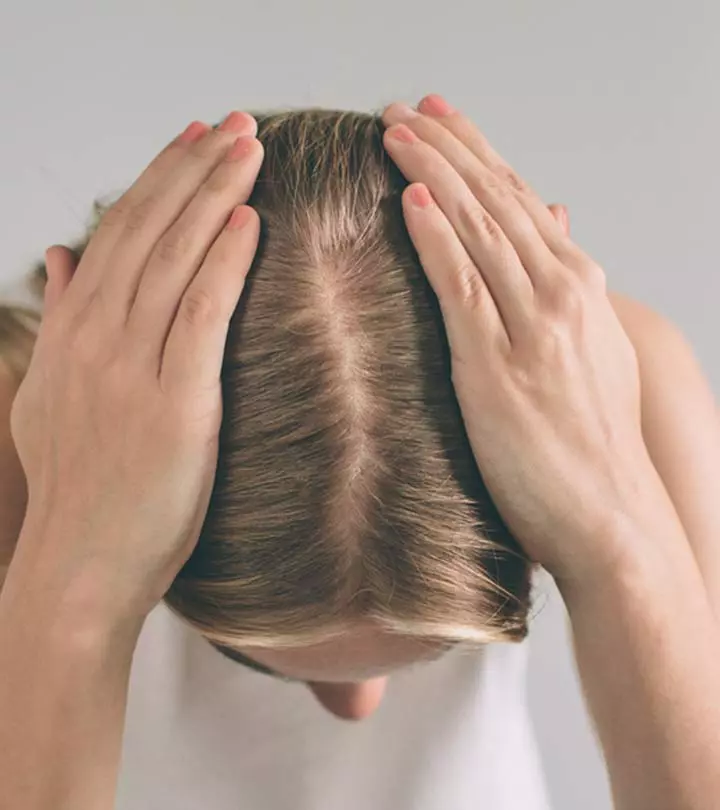
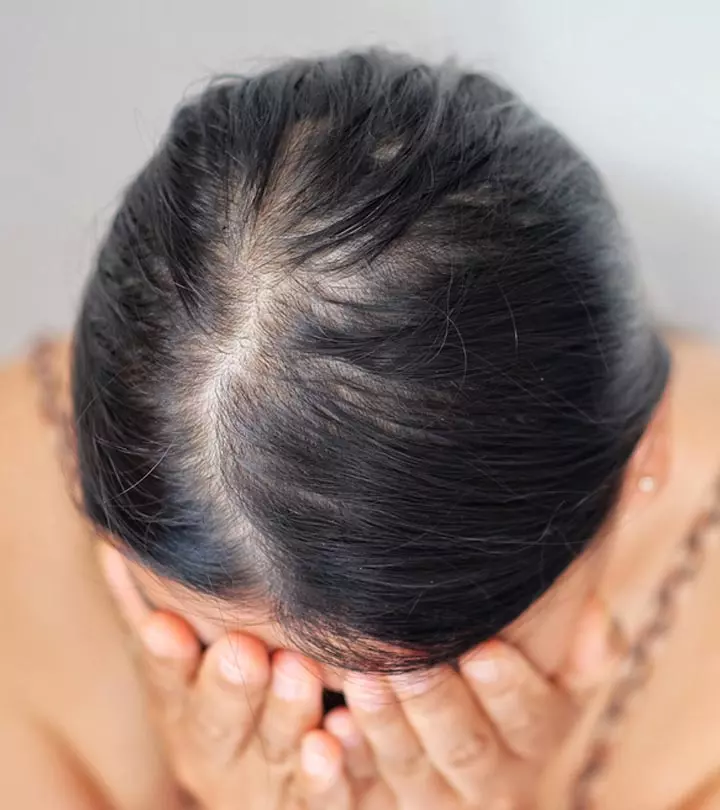
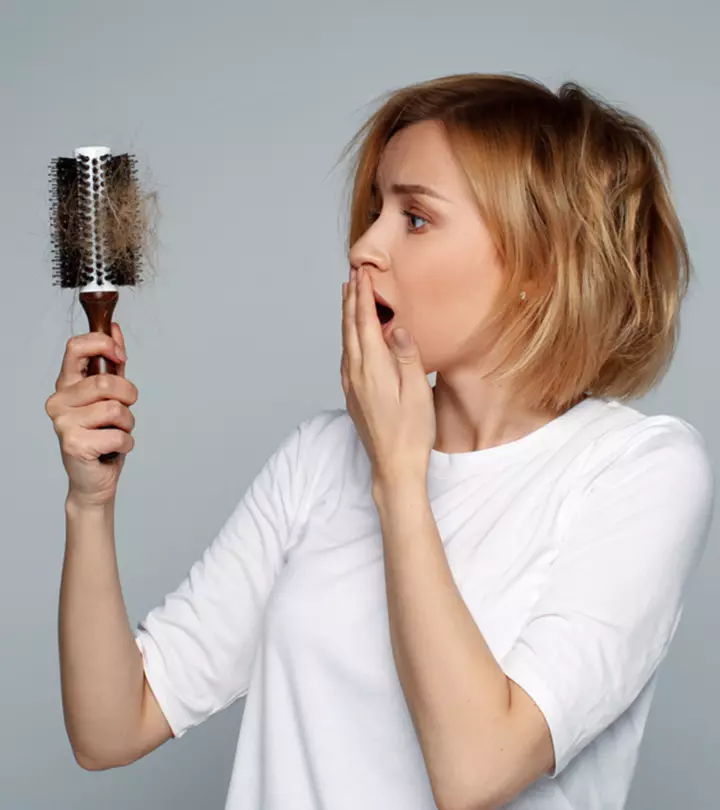


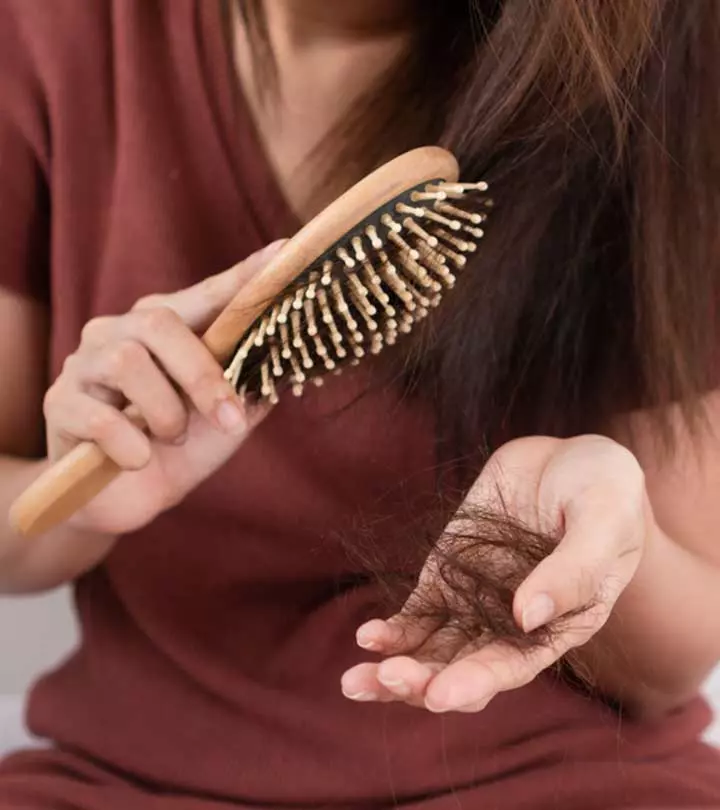
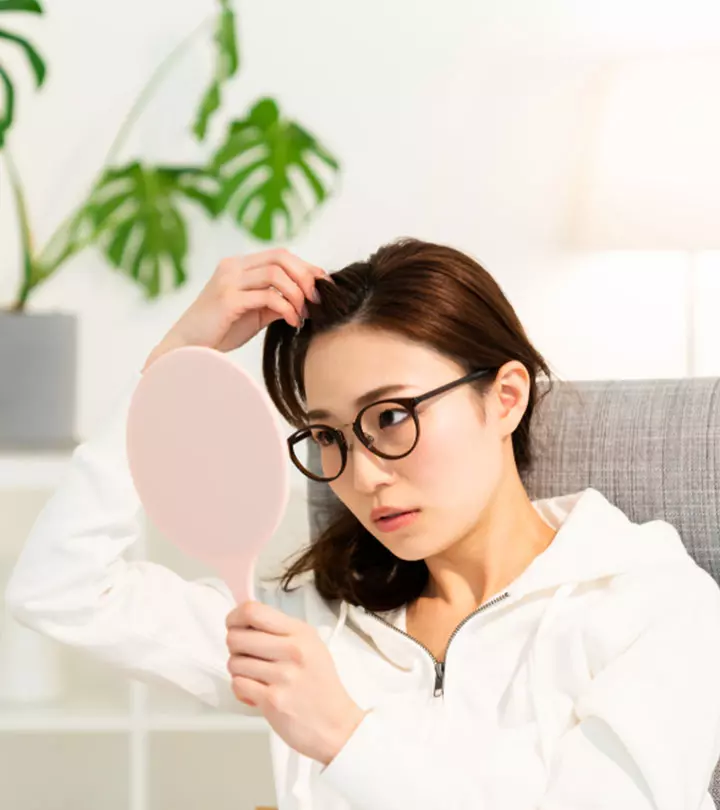
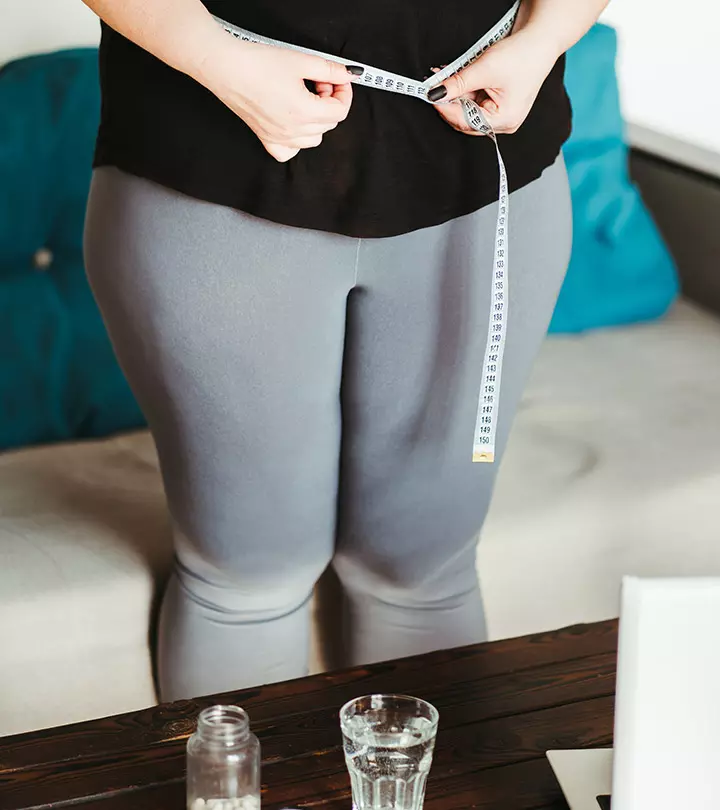
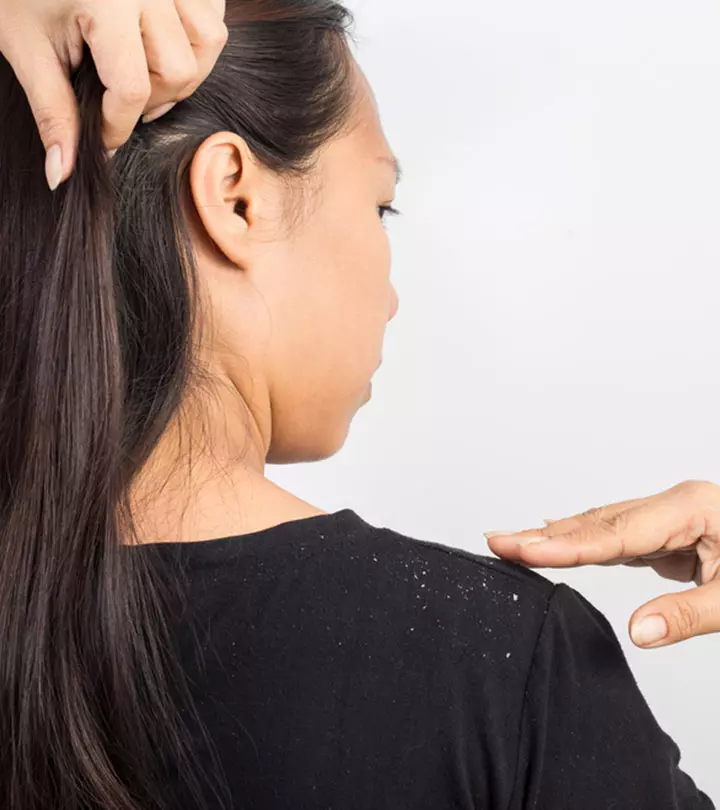



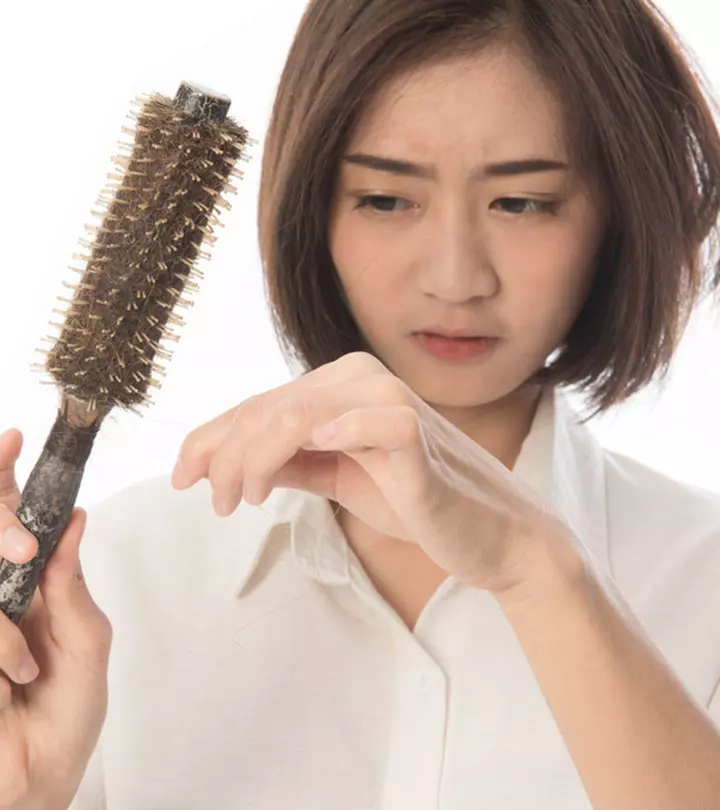
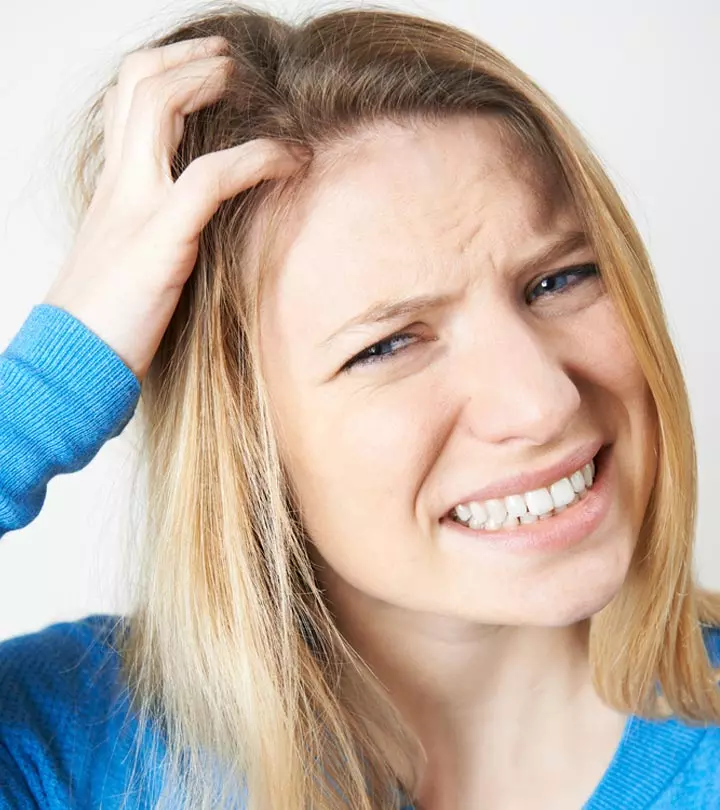
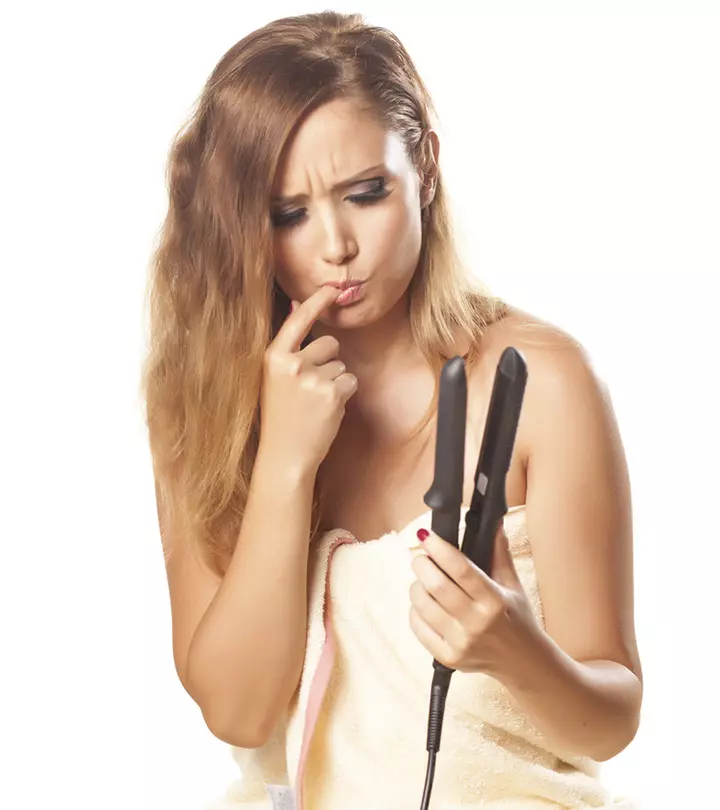




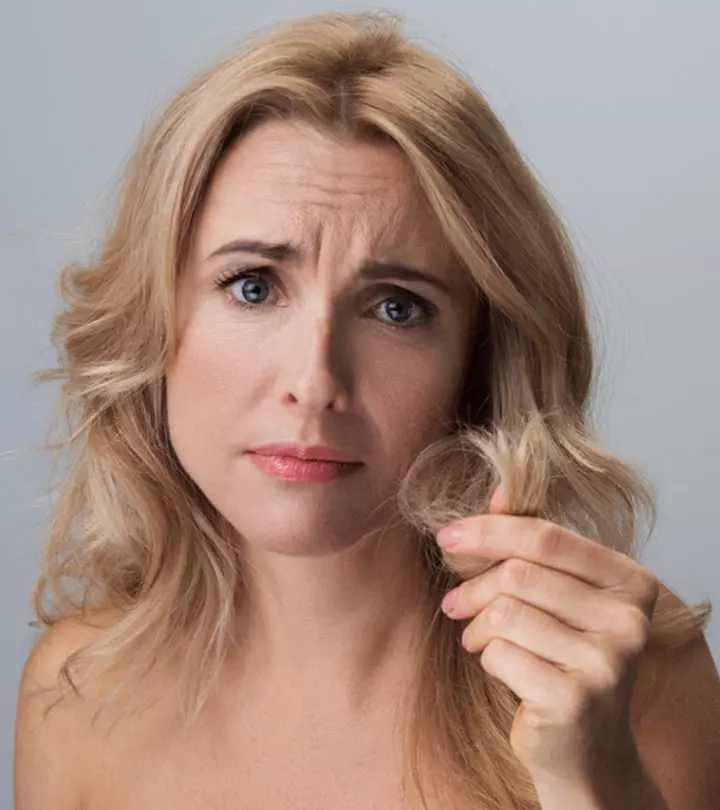

Community Experiences
Join the conversation and become a part of our empowering community! Share your stories, experiences, and insights to connect with other beauty, lifestyle, and health enthusiasts.